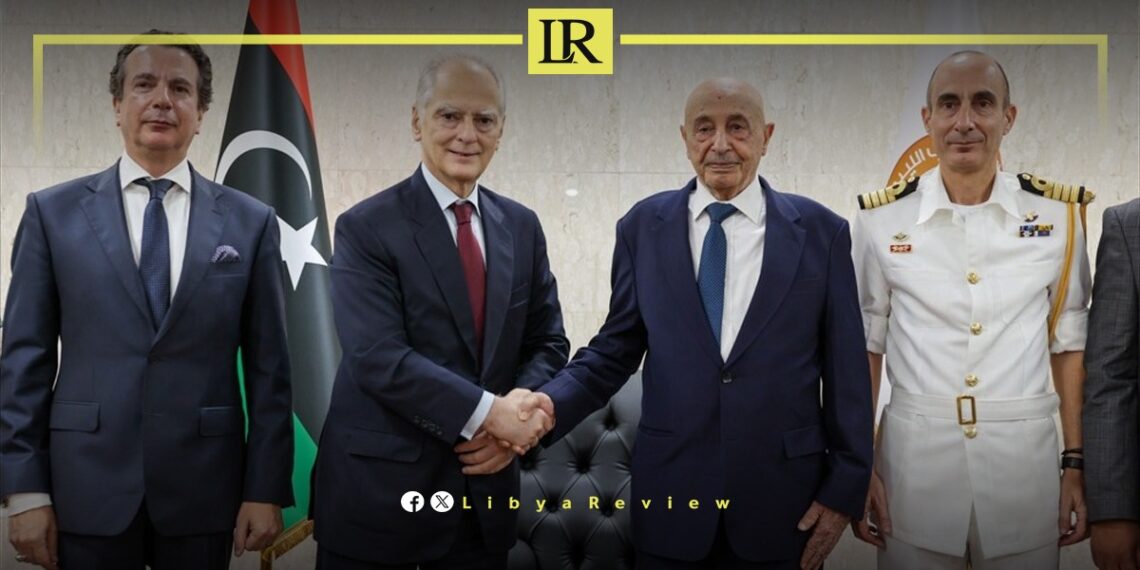On Tuesday, the Speaker of the Libyan House of Representatives, Ageela Saleh, met with Greek Ambassador to Libya Nikolaos Garelidis in Benghazi. The meeting, also attended by Greek Consul General Agapios Kalognomis and Military Attaché Colonel Poseidon Orologidis, focused on the latest developments in Libya and strategies to resolve the ongoing crisis.
The Parliament’s Spokesman, Abdullah Blaiheg reported that the discussions emphasized the importance of presidential and parliamentary elections as a solution to the Libyan crisis. Both parties agreed on forming a unified government to oversee these elections, ensuring stability and cohesion across the country.
The meeting was also attended by Deputy Speaker of the House of Representatives Office Rasmi Al-Barouni and Director of the Presidential Affairs Office Awad Al-Fitouri.
Libya has faced significant turmoil since the 2011 NATO-backed uprising that led to the ousting of long-time leader Muammar Gaddafi. The resulting power vacuum plunged the country into civil conflict, dividing it between rival governments and militias. This prolonged instability has led to severe political, economic, and humanitarian challenges.
The Libyan House of Representatives, based in the east, is one of the two main competing factions, the other being the Government of National Unity (GNU) in the west. Ageela Saleh has been a key figure in the eastern administration’s efforts to find a political solution.
International efforts, particularly by the United Nations, have aimed at fostering peace through elections. However, the roadmap to elections has encountered numerous delays due to disagreements between factions and security issues.
Greece’s diplomatic engagement in Libya highlights its commitment to stability in the Mediterranean region. The involvement of Greek officials in discussions with Libyan leaders underscores the international community’s vested interest in Libya’s stabilization and the broader geopolitical stakes.
The meeting in Benghazi reflects ongoing efforts to unify Libya and advance the electoral process as a means to resolve the crisis. Both Libyan and Greek officials highlighted the necessity of establishing a cohesive government capable of managing and implementing elections, viewed as critical steps towards achieving lasting peace and stability in Libya.


